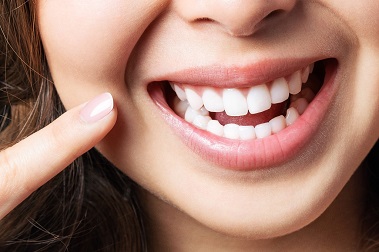
When it comes to babies, there are few absolutes. After all, no two babies are alike, and what works for one may not work the same for the other. But there is one thing that all babies have in common, and this the tendency to cry. As you will inevitably learn, babies cry a lot. And they don’t really have an option not to. Crying is your baby’s earliest way of communicating to you their wants and needs.
While you may not be able to translate your baby’s loud wails to understand what they precisely need, there may be one reason that will always have your little one up in tears – teething. If you think you love your baby’s gummy little smile, wait until their tiny chompers make their appearance. As anticipated as sprouting teeth might be, teething is not a fun journey for your baby.
It’s not hard to identify a teething tot. Among the many signs, irritability, excessive drooling, and loud, constant crying may be some that your baby may exhibit. But before we discuss the whirlwinds of emotions your baby goes through teething, we must first understand what teething truly is.
What is teething?
Teething is when teeth first come through your baby’s gums. At birth, babies are born with a mouth full of 20 teeth but they are concealed under the layer of gum. Once the process of teething begins, your baby’s teeth will start to erupt or break through the gums one at a time.
When do babies start teething?
Most babies begin teething between 6 to 12 months but some start much earlier. There is no need to worry if your baby’s teeth come in on a different timetable. Teething time can vary from baby to baby.
Signs and symptoms of teething
It is normal for your normally calm baby to turn into a fuss bucket during the teething months. It can be a frustrating time for babies and their parents. Knowing what to expect during teething and how to make the experience less painful for your baby can help.

Although the symptoms aren’t the same for every baby, common teething signs include:
- Swollen, tender gums
- Fussiness and crying
- A slightly raised temperature (less than 101 F)
- Gnawing or wanting to chew on hard things
- Lots of drool, which can cause a rash on their face
- Coughing
- Rubbing their cheek or pulling their ear
- Bringing their hands to their mouth
- Changes in eating or sleeping patterns

What’s not normal?
While teething can be painful for your little one, it doesn’t usually make babies sick. According to the American Dental Association, i’s a safe bet to call your pediatrician if your baby develops any of these symptoms:
- Diarrhea
- Vomiting
- Rashes on the body
- A higher fever
- Cough and congestion
How can you make teething easier for your baby?
You can alleviate your baby’s teething pains with these mom-tested remedies:
- Give your baby something to chew on
Rubber teething rings, rattles, and other chewy, soft toys work well. As your little pup gnaws at these toys, the counter-pressure of the gums helps relieve the aches of the new pearly whites pushing in. Just make sure that the toy is big enough that it cannot be swallowed or choked on.
Chewing is even more effective when the object is cold and numbs the gums. Keep the teething toy or wet washcloths in the freezer for 30 minutes before letting your baby gnaw at them.
- Try your hand at teething biscuits
Teething biscuits and frozen or cold foods (like yogurt) are only acceptable for kids who already eat solid foods. Make sure to watch your baby in order to make sure that no pieces break off or pose a choking hazard.
- Apply counter-pressure
You can provide soothing counter-pressure on your baby’s gums by using your clean finger, teething toys with nubbly edges, or a soft, wet toothbrush without toothpaste.
- Over-the-counter pain relief
If your baby seems exceptionally cranky, ask your doctor if it is okay for you to give a dose of pain relievers to ease discomfort.
- Avoid numbing agents
Do not use rubbing alcohol on your baby’s gums. The FDA also warns against using topical numbing agents for babies as it can put your baby at risk for reduced oxygen levels in the blood.
- Amber teething necklaces are a no-go
There is no medical evidence to suggest that amber teething necklaces work, and most pediatricians advise against using them.
As your baby’s tiny teeth begin to trickle in, they will be yearning for your love and comfort. Make sure to be patient with your little one and ease their discomfort. For more expert advice, visit 4Smile!





